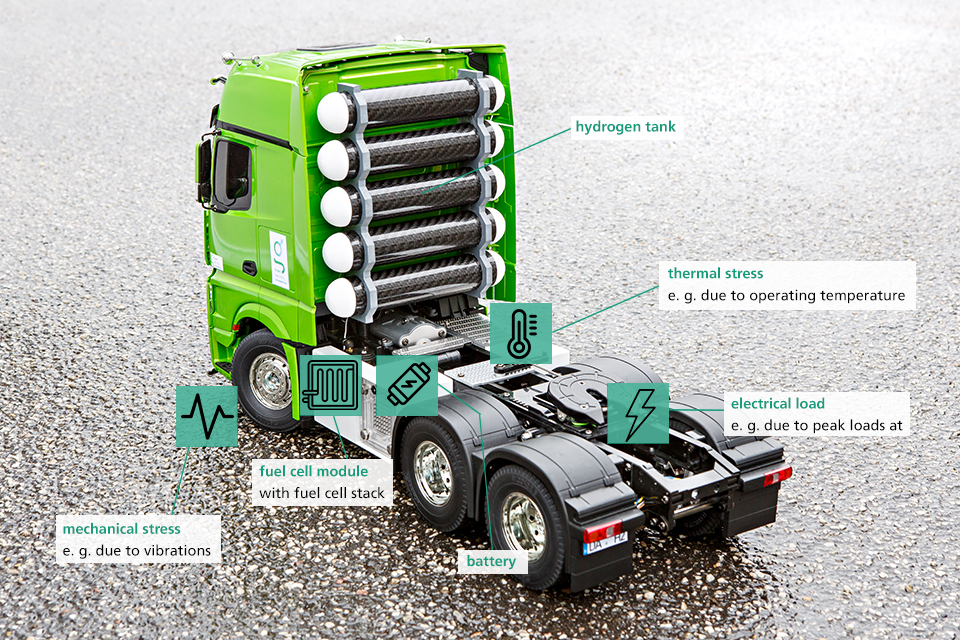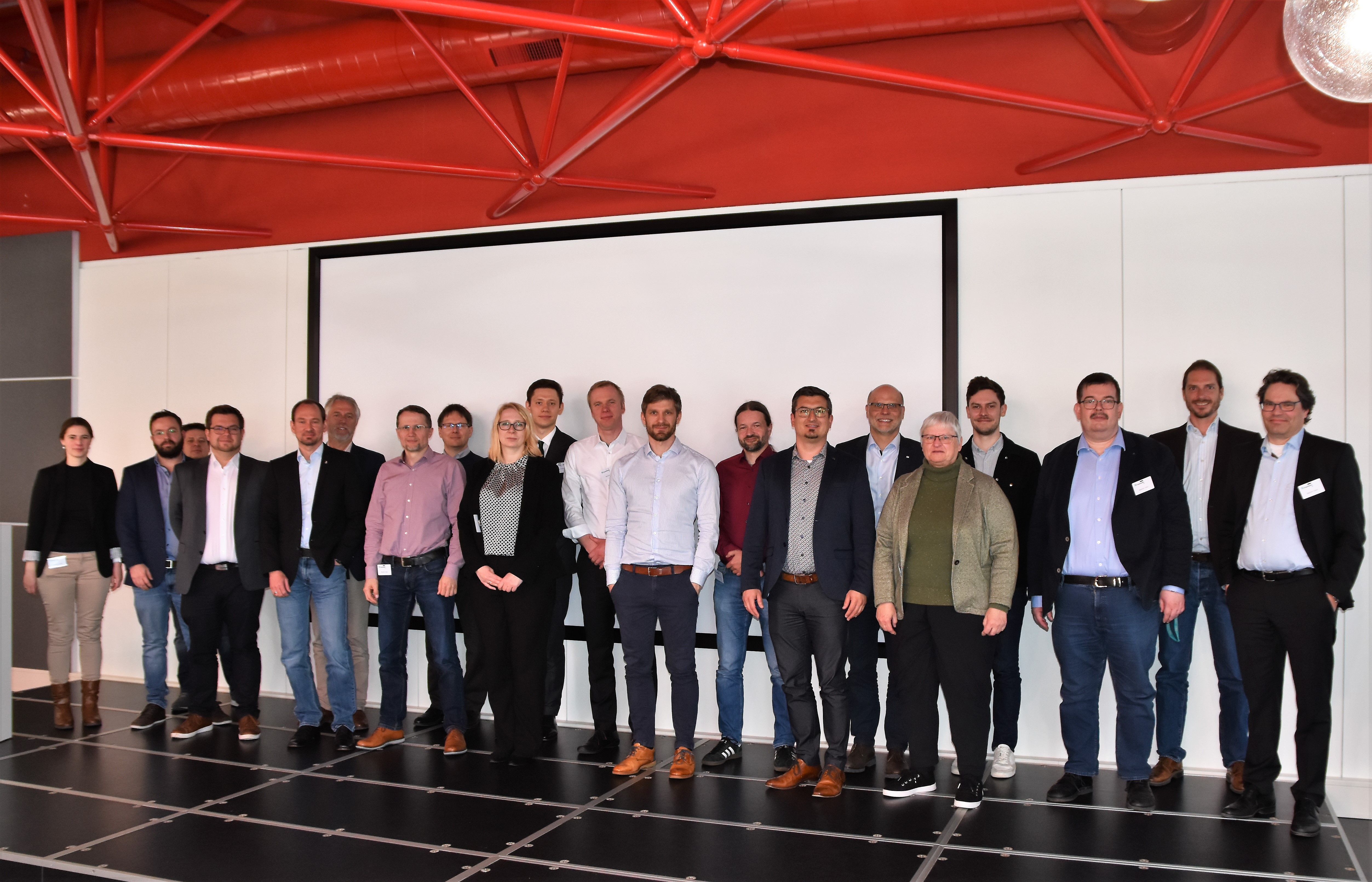Fuel cell, safety, truck
Fuel cell stacks in commercial vehicles: new “multiPEM” project assesses reliability
Commercial vehicles with electrified drive systems and fuel cells for energy supply will be a key technology for the CO2-neutral transportation of the future. In contrast to passenger cars, significantly higher demands are placed on them in terms of operating time and thus reliability. With the recently launched research project “Assessment and design of the system reliability of fuel cell stacks under multiphysical-chemical stress in commercial vehicles – multiPEM”, a consortium led by the Fraunhofer Institute for Structural Durability and System Reliability LBF in Darmstadt will develop analysis, evaluation and test procedures for these complex safety requirements that allow a cost- and time-efficient and safe design of FC stacks for commercial vehicles.
Commercial vehicles with electrified drives and fuel cells for energy supply represent a large market with strong projected growth. The size of the global fuel cell market in 2020 was estimated at 21.7 billion US dollars for 2028. In the multiPEM project, Fraunhofer researchers will develop methods and offers for analysis, evaluation and test procedures that focus on the time- and cost-efficient development of fuel cell stacks for commercial vehicles and support a rapid, sustainable transfer to widespread application. The focus here is on evaluating the reliability of fuel cell stacks for commercial vehicles.
Focus on multiphysical-chemical stresses superimposed for the first time
Due to the insufficient energy densities of battery cells available today and in the future, purely battery-electric drive concepts for heavy commercial vehicles are not an optimal solution in terms of mass, costs and charging time. In contrast, the provision of electrical energy with hydrogen fuel cells offers a promising approach. To this end, so-called low-temperature polymer electrolyte membrane fuel cells (NT-PEM-BZ) are combined in a stack. The mobile use of these fuel cell stacks in commercial vehicles is associated with highly complex, multiphysical (mechanical, thermal and electrical) and chemical stresses. So far, little is known about the superimposed influences of these stresses on the safety and system reliability of the fuel cell stack, since fuel cell-based drives are only available as prototypes in commercial vehicles.

In multiPEM, the effects of simultaneously superimposed multiphysical-chemical stresses on fuel cells in commercial vehicle operation at the stack level are being considered for the first time and transferred into application-relevant methods. The main challenges lie in the identification and evaluation of the critical failure modes, the development of accelerated and realistic test procedures, and the development of fast and cost-efficient investigation routines for destructive and non-destructive characterization. The investigation at the stack level differs significantly from the investigation at the single-cell or material level, since the influence of the stack design and the stack load are the main focus here. The challenge is to collect the required information from a very small number of fuel cell stacks or even just one specific type.
Establish and strengthen value creation in the hydrogen and fuel cell technology field
The multiPEM project is developing analytical, evaluation and test procedures that will help to master the complex stress conditions of LT-PEM FCs in commercial vehicles, thus improving their safety and reliability. For the first time, the effects of the superimposed multiphysical-chemical stresses are being considered and transferred into methods relevant for the application.
The main areas of focus are:
- Development of test procedures and test conditions for investigating the effects of vibrations and pollutants
- Development of methods for non-destructive condition assessment using high-energy computer tomography and magnetic field sensors
- Microstructure analysis and methodical system reliability assessment
All parts of the fuel cell value chain in the context of commercial vehicles can benefit from the results: manufacturers and developers of fuel cells, fuel cell modules and fuel cell systems, as well as developers and system suppliers for test stands. The aim is to generate manufacturer-independent research and development services for FC electric drive solutions in commercial vehicles. The results will help to establish and strengthen value creation in Germany and Europe in the field of hydrogen and fuel cell technology.
 Fraunhofer-Gesellschaft with its institutes ICT, IIS, IMWS and LBF
Fraunhofer-Gesellschaft with its institutes ICT, IIS, IMWS and LBF